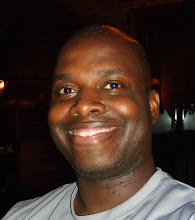You have been taught that you are singularly unique and required to strive toward perfection. You adopt approaches to the perfection question that either perpetuate a cycle of poor mental health, failed relationships, or both. Perfection, in truth, can only be achieved in the context of others. The peak of human experience is discerning through the uncertainty of difference among the multitude of “good” options.
You would rather be convinced rather than convicted. That way, you do not have to take responsibility for the choices you have made and the consequences that have resulted. You were just following the information you were given. Your self-absorption is your excuse and your curse. According to you, you know yourself. But, the knowledge does not result in sustainable choices. The knowledge results in over-thinking rather than doing.
Your excuse is solid. Because you know yourself, you do not place yourself in the position to explore new information. In effect, you refuse the need to grow in an area by steering away from situations that offer an opposing or more in-depth perspective. But, new and expanded information has a way of revealing itself regardless of your ignorance. At that moment, you stand paralyzed, or worse, dissonant acting out of a sense of obligation, guilt, or political correctness rather than clear conviction. You rationalize that you were forced by the situation into a limited set of choices. Not so! You refused to prepare and develop toward a sustainable, responsible handling of new knowledge.
To know yourself is to challenge your internal conversations and your comfortable reactions, to question your answers and your certainties about yourself. Life offers plateaus of arrival, but no end to the journey. You will make mistakes. You have made mistakes. You cannot redo much of what you have done, but you can purpose to engage in new experiences and formulate new directions and opinions. You can be sure of your choices based on the convictions you now hold. You can also, at the same time, be open and receptive to new information realizing that your current conviction could be unsustainable—incomplete and only a piece of the larger puzzle. This realization is not a failure that signals despair, but a motivator toward continued exploration.
You would rather be convinced rather than convicted. That way, you do not have to take responsibility for the choices you have made and the consequences that have resulted. You were just following the information you were given. Your self-absorption is your excuse and your curse. According to you, you know yourself. But, the knowledge does not result in sustainable choices. The knowledge results in over-thinking rather than doing.
Your excuse is solid. Because you know yourself, you do not place yourself in the position to explore new information. In effect, you refuse the need to grow in an area by steering away from situations that offer an opposing or more in-depth perspective. But, new and expanded information has a way of revealing itself regardless of your ignorance. At that moment, you stand paralyzed, or worse, dissonant acting out of a sense of obligation, guilt, or political correctness rather than clear conviction. You rationalize that you were forced by the situation into a limited set of choices. Not so! You refused to prepare and develop toward a sustainable, responsible handling of new knowledge.
To know yourself is to challenge your internal conversations and your comfortable reactions, to question your answers and your certainties about yourself. Life offers plateaus of arrival, but no end to the journey. You will make mistakes. You have made mistakes. You cannot redo much of what you have done, but you can purpose to engage in new experiences and formulate new directions and opinions. You can be sure of your choices based on the convictions you now hold. You can also, at the same time, be open and receptive to new information realizing that your current conviction could be unsustainable—incomplete and only a piece of the larger puzzle. This realization is not a failure that signals despair, but a motivator toward continued exploration.

